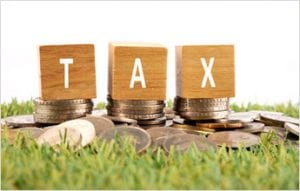 What is Land Tax?
What is Land Tax?
Land tax is a state tax calculated on the capital unimproved value of the property as of 31 December each year. The tax rate that applies depends on what type of owner you are, the total taxable value of the property and if any exemptions apply.
Land tax may be payable on rental and investment properties, commercial property, holiday homes and vacant land, subject to the threshold (see below).
Land Tax Threshold
Some thresholds must be reached before a landowner will be charged land tax. The threshold at the moment in Victoria is $250,00.00 each calendar year. In other words, a land owner will pay land tax when the total value of all their Victorian property as of 31 December each year, minus exempt land, equals or exceeds the threshold.
If a landowner owns the land as trustee of a trust, the threshold amount is $25,000.00. Further, a surcharge rate on the general land tax applies to the aggregate land holdings of the trust from $25,000 to less than $3 million. The surcharges cease to apply for taxable land holdings valued at $3 million or more.
Exemptions from Land Tax
Most Victorian landowners are not liable for land tax because their property is their principal place of residence. Landowners who use the land for primary production, rooming houses, and charitable institutions are also exempt from land tax.
If a landowner decides to rent out their principal place of residence or change their address, the principal place of residence exemption ends and the property may be subject to land tax if it is valued at or above the threshold amount.
Payment of Land Tax
The State Revenue Office (“SRO”) is tasked with issuing assessment notices and collecting land tax. Land tax assessment notices are issued each year between late January and May. Land tax can either be paid in a lump sum or quarterly.
Absentee Owners
From 1 January 2017, a 1.5% absentee owner surcharge on land tax applies to land owned by an absentee owner.
Vacant Residential Property Tax (“VTPT”)
From 11 January 2018, a VTPT will be levied on dwellings that are vacant for more than 6 months in a calendar year. The VTPT aims to encourage owners who unreasonably leave their properties vacant to make them available for purchase or rent.
The VTPT only applies to vacant homes in the following municipal councils – Banyule, Bayside, Boroondara, Darebin, Glen Eira, Hobsons Bay, Manningham, Maribyrnong, Melbourne, Monash, Moonee Valley, Moreland, Port Phillip, Stonnington, Whitehorse and Yarra.
The VTPT is self-reporting. That is, owners of vacant residential properties must notify the State Revenue Office of any vacant properties they own. Liability for the VTPT will be triggered on a calendar year basis (like land tax) and charged at a rate of 1 per cent of the property’s capital improved value.
In recognition that there may be legitimate reasons for a property to be left vacant, specific exemptions from the VTPT will be granted, such as a holiday home, a city unit for work purposes, deceased estates, and homes owned by Victorians temporarily overseas.
For further information on the land tax, please contact us at property@ballaratlawyers.com.au or on 5303 0281.
For more information on our conveyancing arm, click here.
The information on this website is general only. It is not legal advice, nor is it intended to be. You should consult a lawyer for individual advice about your particular circumstances.
Liability is limited by a scheme approved under Professional Standards Legislation.
Click here to go back to Publications.
